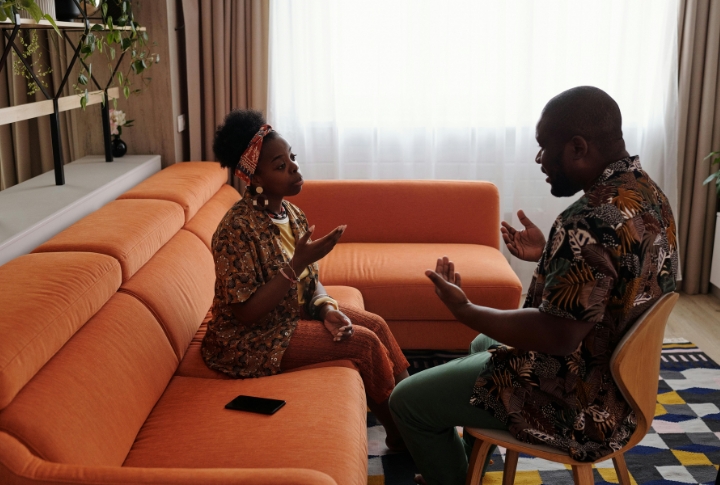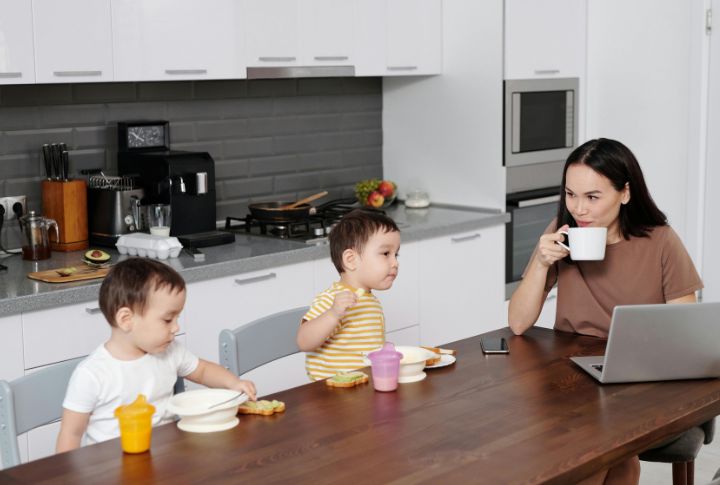
Sometimes, the smallest phrases reveal the most about how people relate to one another. “It’s up to you” seems harmless, even polite, yet it tends to surface in moments that matter. You might not think twice about saying it, but its effect lasts longer than it sounds. Let’s explore what makes that common response so telling in everyday conversations between men and women.
Signals Emotional Disengagement

At first, saying “it’s up to you” sounds harmless—maybe even thoughtful. But relationship experts say it can actually point to something deeper: emotional distance. When one partner stops showing genuine interest or stops engaging in shared decisions, the connection starts to fade.
Shifts The Mental Load Onto Women

“It’s up to you” might sound like sharing control, but in reality, it dumps extra work on women. They end up handling the constant stream of small decisions—what to eat, when to plan, who to remember. Over time, that invisible labor builds into exhaustion and resentment.
Feels Like A Lack Of Personal Preference

Sometimes, people say “it’s up to you” because they want to seem agreeable. It feels easier than risking disagreement. However, that habit can make relationships feel surface-level, like no one really knows what the other wants. Showing honest opinions and preferences keeps things feeling real and connected.
Appears Passive And Indecisive

Picture two people: one always defers decisions, the other speaks up confidently. It’s easy to guess which one feels more grounded and trustworthy. In relationships, confidence in small choices can make all the difference in how secure and respected both people feel.
Obscures Long-Term Priorities In The Relationship

Talking through choices, even the small ones, helps couples align and build a shared sense of direction that keeps the relationship growing. But when you always leave the decisions up to her, bigger goals start to blur. It’s hard to tell where both people want to go, literally and emotionally.
Reduces Perceived Investment In Shared Plans

When someone keeps saying “it’s up to you,” it starts to feel like they’re stepping out of the relationship, one small decision at a time. Shared plans matter because they show effort and care. When a man stops participating, the woman feels unappreciated.
Erodes Trust by Hiding True Preferences

Trust grows through honesty in everyday choices. Saying “whatever you want” might seem considerate, but it often hides real feelings. After some time, that phrase can feel like distance. If you don’t share your true opinions, it’s hard to feel emotionally close or sure about what she truly wants.
Communicates Avoidance Of Responsibility

In healthy relationships, responsibility is about showing up. When men keep saying “it’s up to you,” it can sound like they’re stepping away from their responsibilities. That habit quietly builds frustration and imbalance. Sharing small decisions keeps both people engaged, respected, and emotionally connected.
Prevents Memorable, Surprise-Driven Experiences

You know those moments that just make a relationship feel alive? The surprise plans, the “get ready, I’ve got this” kind of days. That’s what disappears when decisions are always deferred. Taking the initiative means caring enough to create moments you’ll both remember.
Allows Resentment To Accumulate Silently

Avoiding conflict might feel peaceful in the moment. However, silence often comes at a cost. If you always defer decisions, small frustrations start to build under the surface. Soon, those unspoken irritations turn into resentment. Talking things through early—before emotions pile up—is what keeps relationships grounded and emotionally safe.
Signals Low Emotional Intelligence Or Maturity

Emotional maturity shows in how people handle choices. Constantly saying this phrase can reveal discomfort with expressing your needs or understanding her needs. That lack of awareness is damaging. Being emotionally present—by noticing, listening, and responding with care—is what strengthens understanding between couples.
Diminishes Reliability And Follow-Through

Always leaving it up to her can quietly chip away at trust. That habit makes her wonder if she can ever count on her man. Reliability isn’t built through big promises—it’s built through small, consistent follow-through. Taking initiative sends a stronger message of support.
Sends The Message That Her Time Isn’t Valued

When decisions keep landing on the woman’s plate, it’s more about time. Saying “it’s up to you” might feel considerate, but it often means she is the one who ends up spending all her time. That imbalance slowly says, “Your time matters less,” even if that’s never the intention.
Makes Consent And Boundaries Ambiguous

“It’s up to you” sounds like giving space. However, it can also create confusion. The words blur who’s actually comfortable with what, especially in sensitive moments that need honesty. Real respect means speaking clearly and checking in, not stepping back so far that the woman feels alone in the decision.
Reinforces Stereotyped Gender Roles

It might seem polite to let her decide everything, but that habit can quietly play into old patterns. When a woman always takes the lead in household decisions while the man hangs back, it limits growth for both. True partnership means sharing the wheel—making choices together instead of falling into societal roles.
Hinders Attraction By Signaling Low Confidence

Confidence means showing you care enough to decide. Constantly saying “whatever you want” can come off as uncertain, even disinterested. Most women find decisiveness appealing because it shows self-assurance and presence. Small choices, like picking a movie, often say more about confidence than words ever could.
Sabotages Rituals That Build Intimacy

Little romantic rituals—choosing date spots or planning weekends—are what turn ordinary meetups into romantic memories. When the man keeps deferring, those moments lose their spark. Saying “you choose” might seem easy, but it slowly erases the tiny, shared acts that build closeness and make a relationship feel alive.
Creates Unequal Partnership Patterns In Parenting And Housework

This phrase can soon spill into daily life—school schedules, chores, family routines. Before long, the woman ends up managing everything for everyone, even relatives. Sharing the load equally doesn’t just reduce stress—it reinforces respect, partnership, and a sense that both voices matter at home.
Undermines Shared Decision-Making Skills

When you constantly defer choices, you both miss out on practicing the art of compromise. Making decisions together builds communication, empathy, and teamwork. Without that practice, couples may struggle when faced with more serious challenges that require mutual understanding.
Misses The Chance To Share Personal Preferences

With this line, you leave out what you genuinely want. Whether it’s how you prefer to spend your downtime or what kind of social plans energize you, those preferences stay hidden. Over time, the woman may feel like she’s in a relationship with someone who’s just along for the ride—not someone who’s actively shaping their shared life.

